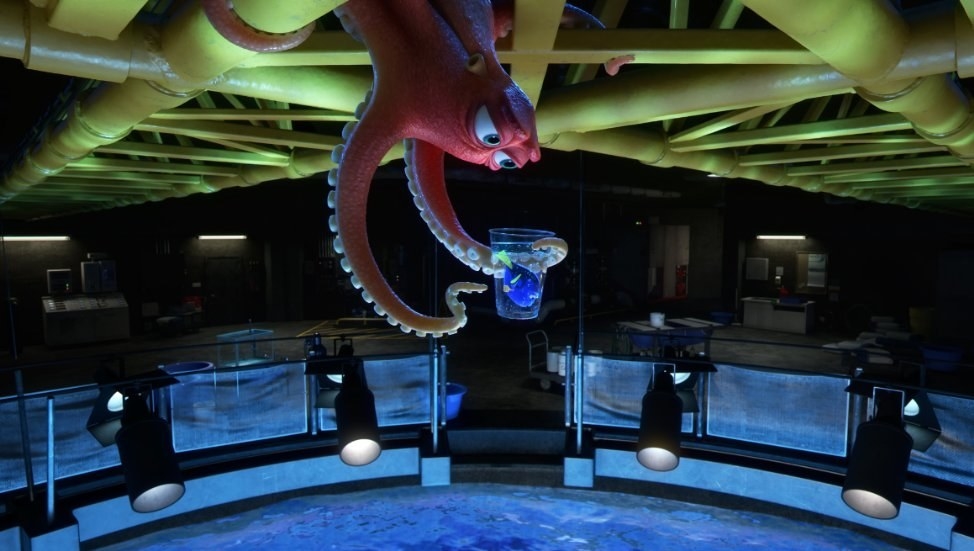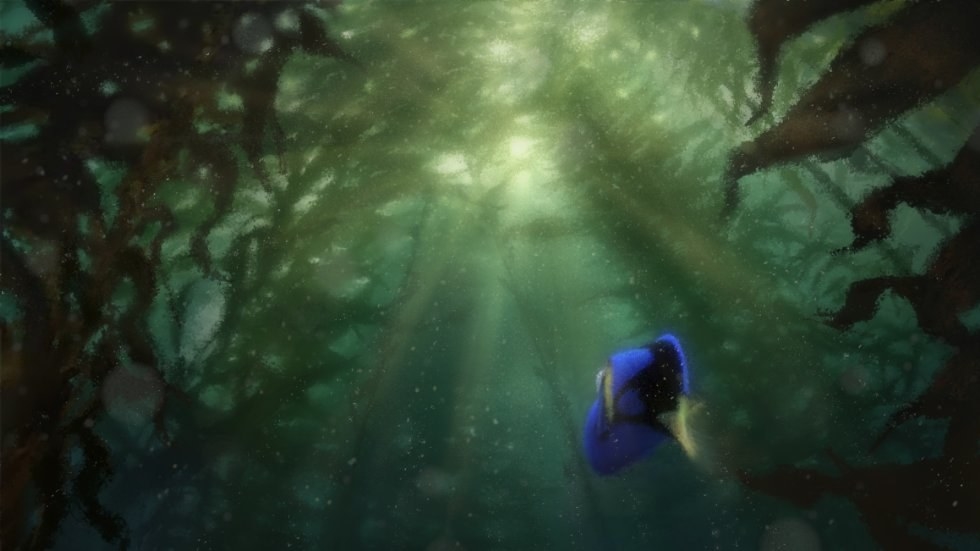
Marlin the clownfish is the patron saint of worrywarts everywhere. His little face creased with concern and the fretful quaver in his voice, courtesy of actor Albert Brooks, make him the epitome of anxiety in adorable fishy form. Finding Nemo and its sturdy sequel Finding Dory are about letting go, and Marlin spent all of the 2003 Pixar classic in a panic over his missing son Nemo (Alexander Gould), a fish with an underdeveloped fin that provided an extra excuse for his overprotective father to shield him from the larger ocean. In that first film, Marlin learned an important lesson about letting his loved ones swim free so they can figure out how to make their own way, and it's one he has to relearn, with new circumstances, in Finding Dory.
The ocean is still a spectacularly realized, sometimes scary place teeming with life in the sequel, which picks up a year after Finding Nemo left off. And this time, sidekick-turned-heroine Dory (Ellen DeGeneres) is the one in search of lost relatives, embarking on a quest to find the parents she finally remembers she has. (The new movie expands hugely on a throwaway line from Dory in the first film: "I forget things almost instantly. It runs in my family — well, I mean, at least I think it does. Hmm...where are they?") Marlin, Nemo (now voiced by Hayden Rolence) in tow, accompanies her apprehensively, agonizing over what might befall his forgetful friend on a dangerous journey to the California coast, searching for clues in memories triggered by encounters with familiar sights and sounds.

The difference in Finding Dory is that Dory's not a child like Nemo — she's a grown character with memory issues, unable to hold most things in her head for more than a minute or two after she's taken them in. It's a condition that was mostly played for humor in Finding Nemo, the tightly wound Marlin teaming up with a breezy buddy anxieties couldn't stick to, even if she wanted them to. Dory is still irrepressible in Finding Dory, still making her way brightly and cluelessly through life in a state of perpetual now, but her backstory adds a steady element of pathos to a movie that otherwise follows in the same beats as the original.
Finding Dory is, in its own colorful talking-sea-creatures way, about giving agency to someone who's not neurotypical, who doesn't process the world in the same way as the other characters, sometimes to her advantage. The film was directed by Andrew Stanton, who helmed Finding Nemo, and while it doesn't have the freshness or the resounding solidity of that first oceanic adventure (pointing out, at times, its own repetitions), it gets an extra piquancy from its insistence that Dory deserves the same trust and control that Nemo is given in the first movie — that she deserves her chance at independence, no matter how good a place the desire to shelter her comes from.

She can be a frustrating protagonist, mostly by design, getting easily distracted from goals and rushing impulsively full-speed into situations without a plan. When she finds her way to a marine institute not unlike the real-life Monterey Bay Aquarium, she befriends and immediately starts infuriating Hank (Ed O'Neill), an irresistibly acrobatic octopus on the lam who catapults through hallways and rooms like he grew up indoors instead of in the ocean, at one point camouflaging himself as a potted plant. Hank's a truly excellent Pixar creation, a boneless marvel of animated physics, but he also feels like a counterweight to a far more menacing tentacled sort that Dory and Marlin encounter earlier in the movie: a large squid who attacks for reasons that are entirely Dory's fault.
The institute, it turns out, is where Dory was born, and where she gets separated from Marlin and Nemo, who have their own brushes with some English-accented sea lions (Idris Elba and Dominic West) and a cockeyed bird. With the help of the gruff Hank and a more eager whale shark named Destiny (Kaitlin Olson) and beluga named Bailey (Ty Burrell), she hones in on the home she once shared with her parents. But, of course, it doesn't always go smoothly.

The scenes of Dory's panic when she's lost or feels something slipping from her mind are genuinely upsetting, as she darts through the water without anything to latch onto other than a sense of what she's losing. There's a scene in which she seems to have lost everything except for her sense that something is wrong. But then she settles, and traces her steps, and asks for assistance when she needs it, and tries again, a theme Finding Dory links rousingly to the institute's mandate of rehabilitation and release of its animals. While Finding Nemo was a film about letting go, Finding Dory is as much one about learning to trust in oneself. She'll be fine, Dory will. It's not that big an ocean, after all.
